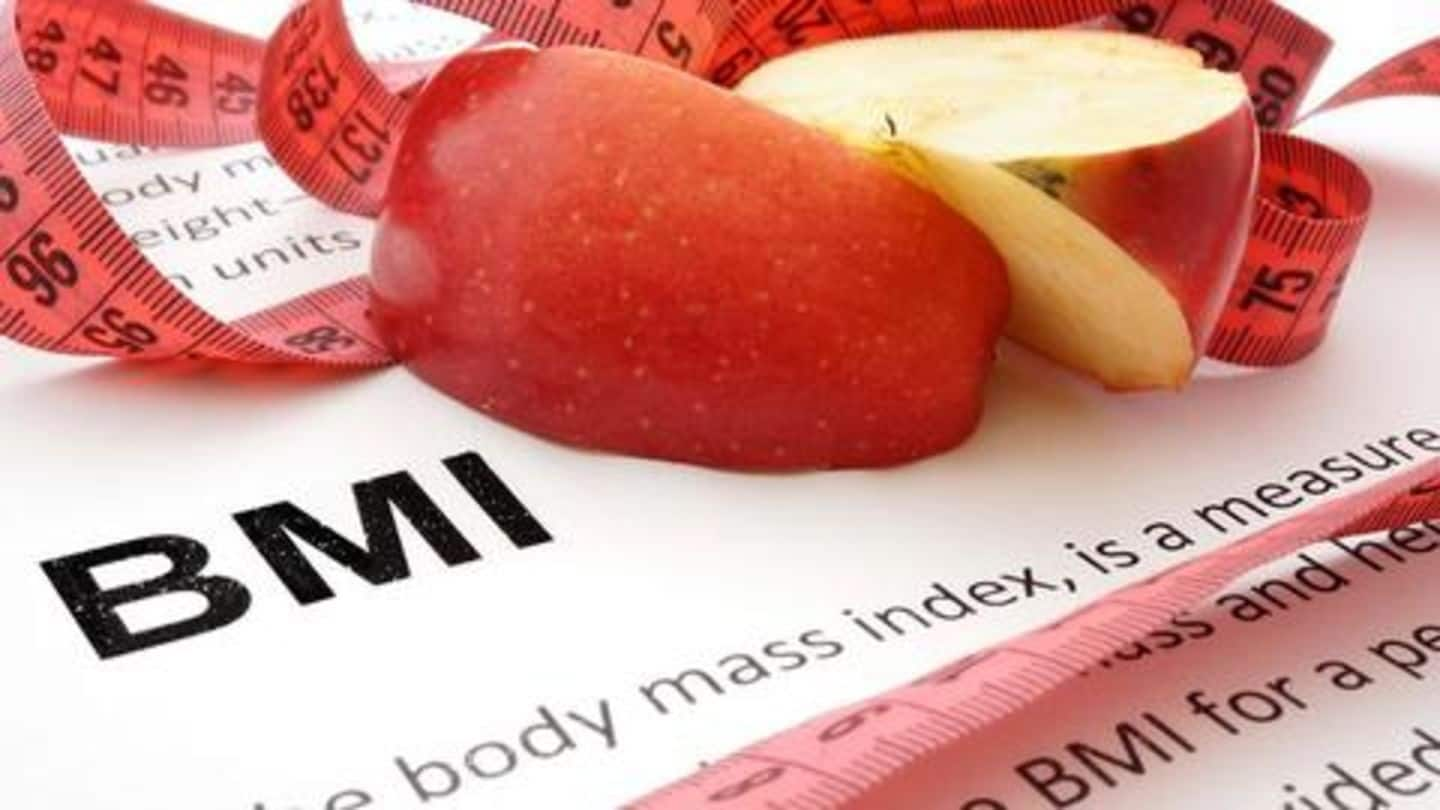
#HealthBytes: How to maintain a healthy Body Mass Index (BMI)
What's the story
Body Mass Index (BMI) is a widely accepted and effective measure of body fat, computed by taking into account a person's body mass and height. It is essentially the division of body mass by body height. BMI is expressed in Kilograms per meter square (Kg/m²). It lets us know whether a person comes under overweight, normal-weight, or underweight category. Here's all about it.
Information
How to calculate Body Mass Index (BMI)
Body Mass Index is calculated by dividing body weight (in Kgs) by square of body height (in meters). For example, of a person weighing 70 Kgs, has a height of 1.8 meters, the BMI would be equal to 70/1.8² = 21.6 (normal BMI).
Do you know?
BMI Classification
According to the World Health Organization (WHO), a BMI of less than 18.5 is considered 'underweight', between 18.5 to 25 is 'normal', and those between 25 and 30 fall under 'overweight' category. Further, results equivalent to or greater than 30 come under 'Obese' classification.
Importance
Why maintaining a normal BMI is crucial
Maintaining a healthy body weight is crucial as it helps avoid risk of dreadful diseases associated with an unhealthy body weight (underweight or overweight). Underweight individuals are at an increased risk of osteoporosis, impaired growth, anemia, perpetual fatigue, hormonal imbalance, and so on. And obese people risk themselves for diabetes, heart disease, high BP, certain cancers, osteoarthritis, sleep apnea, etc.
#1: Diet
Tips for maintaining a healthy (normal) BMI
For starters, if you've not been eating healthy lately, you'll have to make rather dramatic changes in your diet plan. A balanced and nutritious diet goes a long way in helping you achieve a healthy body weight (thus, a normal BMI). Include more veggies and whole foods in your diet. And, let go of oily, fatty, and junk food.
#2: Exercise
Exercise regularly and religiously!
The toughest part about starting to exercise is the starting part itself- once you get going, it only becomes easier. So, make exercise a regular and religious part of your life, to score a healthier BMI score. Not only will exercise get you in a better shape, it will also improve your overall mental and physical well-being.
#3: Rest
Proper rest is important for maintaining a healthy weight
Getting proper rest is just as important as eating the right food items and exercising regularly, if not more, in order to maintain a healthy weight. Assure yourself a regular sound sleep of at least 7-8 hours to let your body recover from the workout. Also, build a consistent daily sleep schedule. Not just that, consider reducing your screen-time as it promotes sedentary habits.